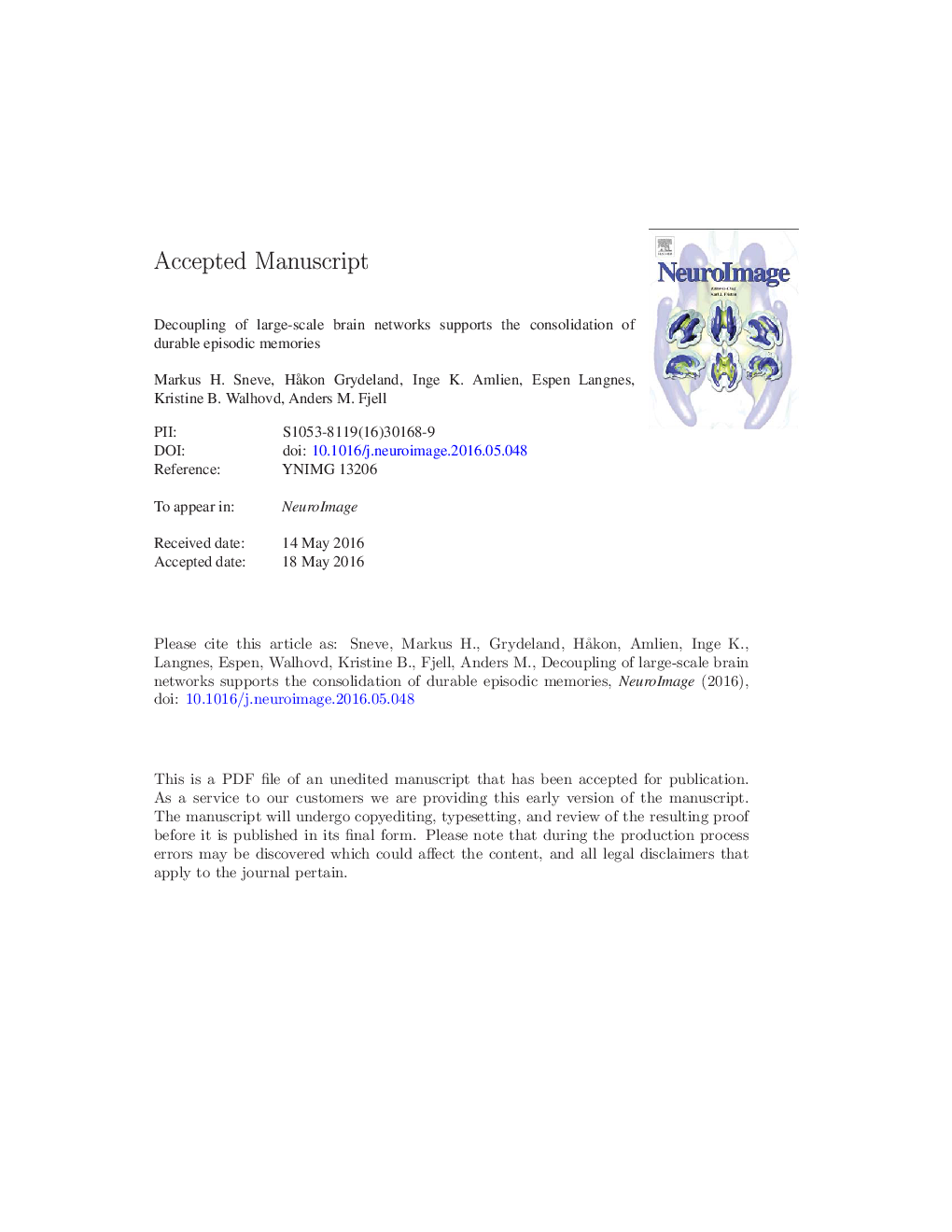ترجمه فارسی عنوان مقاله
جدا کردن شبکه های بزرگ مغز از تحکیم خاطرات دوره ای طولانی پشتیبانی می کند
عنوان انگلیسی
Decoupling of large-scale brain networks supports the consolidation of durable episodic memories
| کد مقاله | سال انتشار | تعداد صفحات مقاله انگلیسی |
|---|---|---|
| 119403 | 2017 | 35 صفحه PDF |
منبع

Publisher : Elsevier - Science Direct (الزویر - ساینس دایرکت)
Journal : NeuroImage, Volume 153, June 2017, Pages 336-345

